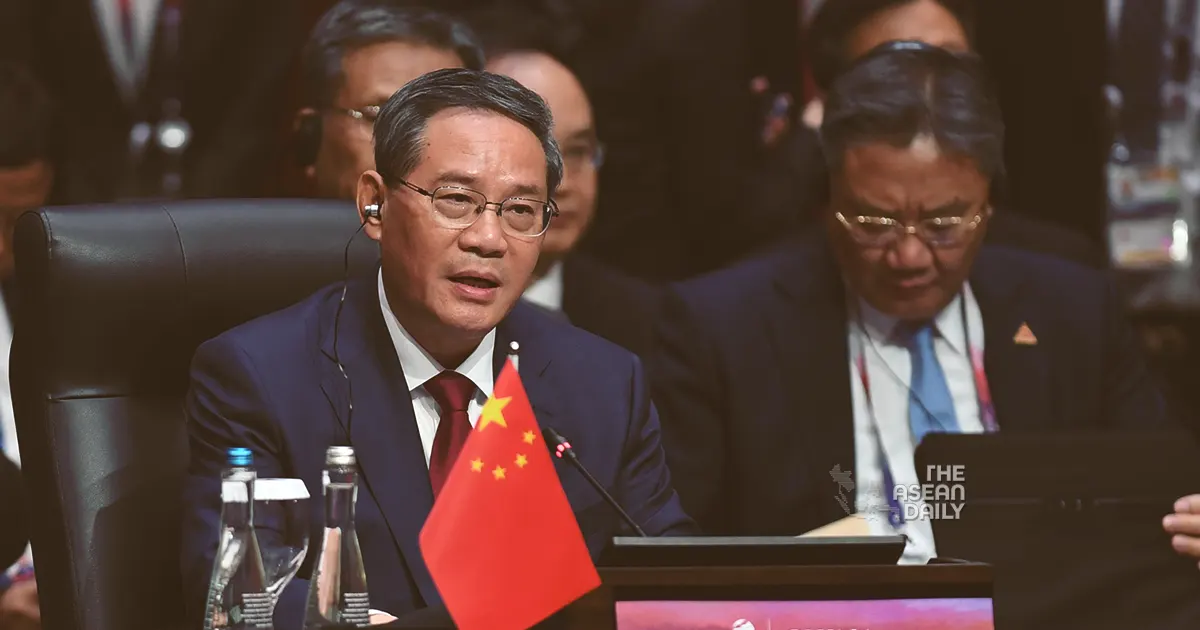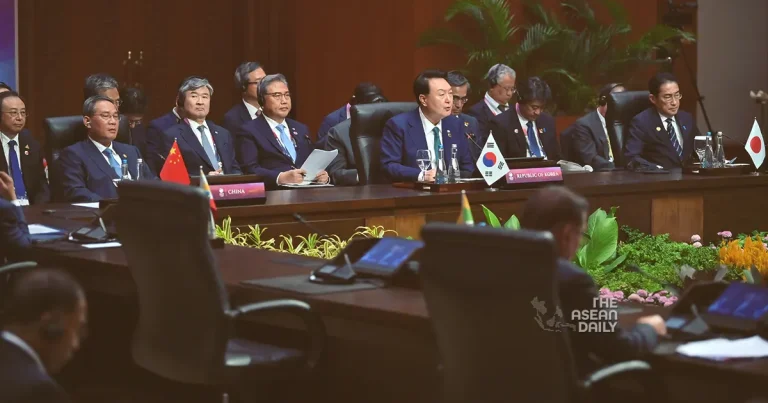6-9-2023 (JAKARTA) Chinese Premier Li Qiang and Japan’s Prime Minister Fumio Kishida engaged in a war of words at the ASEAN Plus Three summit in Jakarta regarding the wastewater released from the Fukushima Daiichi nuclear plant into the Pacific Ocean.
Li accused Japan of releasing “nuclear-contaminated water” and emphasized that the issue had global marine ecological implications, as well as impacts on health and safety. He urged Japan to “handle the matter responsibly” and “fully consult with its neighbors,” according to Xinhua News Agency.

In response, Kishida defended the safety of the wastewater, citing a report from the International Atomic Energy Agency. He stated that “No problems have arisen from a scientific point of view” based on collected data, according to a statement from Japan’s foreign ministry.
Japan began discharging treated wastewater from the Fukushima nuclear power plant into the sea on August 24. While radioactive isotopes have been removed, the discharge still contains tritium, a radioactive form of hydrogen considered safe by international standards.
China reacted strongly to the discharge, suspending all seafood imports from Japan. During the summit, Kishida criticized China’s drastic response, referring to the import ban as “an act that sticks out.”
Before the summit commenced, Kishida explained Japan’s stance on the matter to Li in a brief conversation, marking their first in-person discussion since Li took office in March.

Public concerns and anger have been mounting in China, partly fueled by disinformation. Some Japanese municipal offices and companies have received prank calls regarding the wastewater. Japan has advised its citizens in China to maintain a low profile and has increased security around schools and diplomatic missions.
Indonesia’s Foreign Minister Retno Marsudi stated that Kishida had discussed the Fukushima water issue with ASEAN member states at a separate summit. She emphasized Indonesia’s willingness to cooperate with the International Atomic Energy Agency (IAEA) and underscored the importance of transparency and monitoring.
Singapore confirmed that it had not detected contaminated food samples from Japan and reiterated its monitoring of imports.
Vietnam downplayed concerns, noting that radioactivity levels were minimal and would not affect fishing activities in its waters. The Philippines did not object to the discharge and emphasized its science- and fact-based perspective on the issue.
While official stances support Japan’s position, unease remains among businesses and the public. Small-scale fishermen in the Philippines expressed opposition to the water release out of concern that it could impact their livelihoods. A Gallup poll in South Korea revealed that 60% of respondents were hesitant to consume seafood, prompting the government to consider issuing seafood vouchers to reassure consumers.




